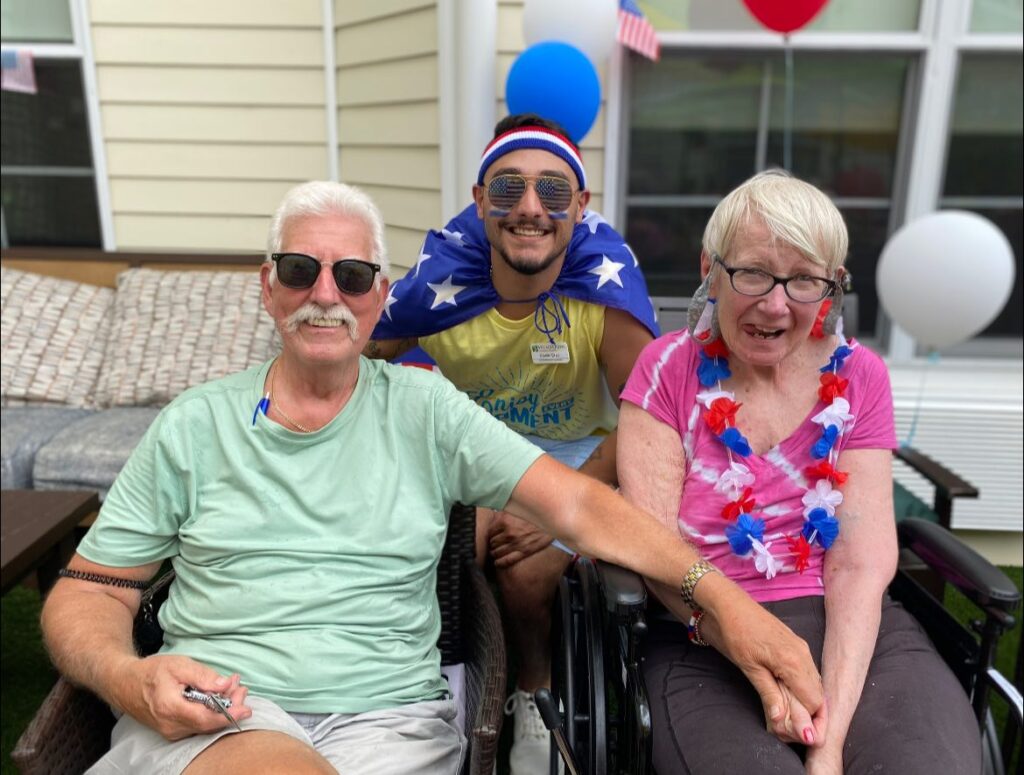How do you care for someone with dementia?
Different authorities and institutions across the globe have different ideas about how to care for those with dementia.
According to research, people in China caring for those with dementia tend to be more concerned about losing face when caring for individuals with dementia, a belief that’s associated with greater loneliness than their European caregiver counterparts.
So, given that everyone has different beliefs about caregiving and supporting individuals with dementia, how do you care for someone with dementia? And what are a few tips and tricks that have been shown to work across the board even amidst different cultures?
Our community of caregivers is always asking these types of questions, because we believe that when you have the right information, you’ll be better able to care for your loved ones.
If you’re wondering how to care for someone with dementia, you’ve come to the right place. In this short article, we’ll provide tips for caring for someone with dementia on the following topics:
- Everyday care
- Changes in communication and behavior
- Home safety
- Staying engaged with the work you do now and in the future
- Tidbits and facts about memory care
- What to do when you have questions about caring for those with dementia
Caring for someone with dementia: tips for everyday care
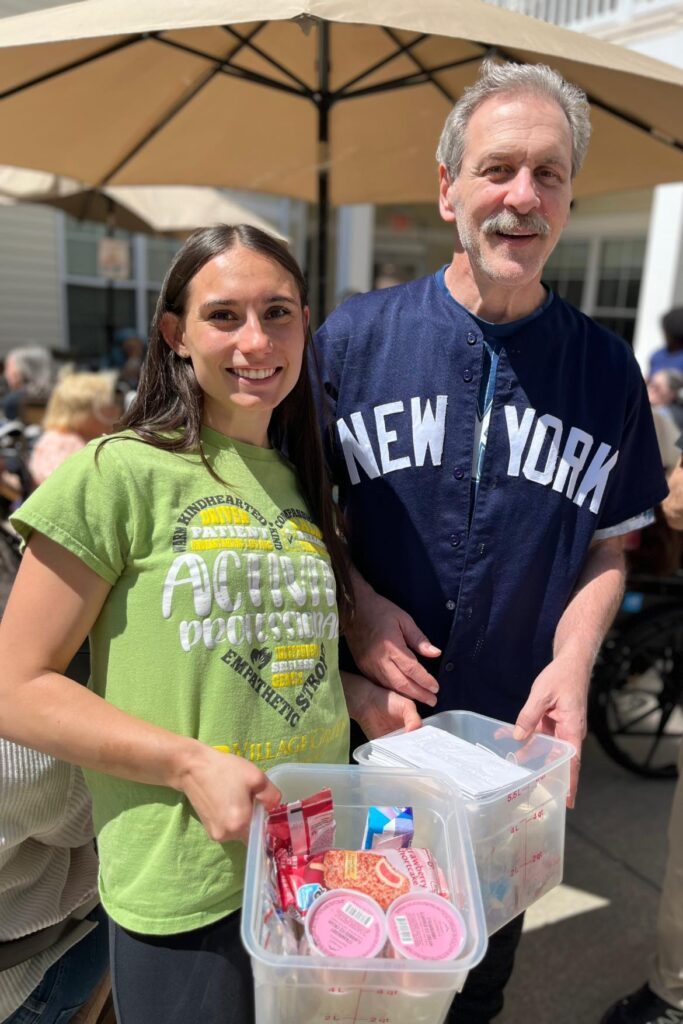
Early on in Alzheimer’s and other related dementia stages, people experience changes in the way they think, remember, and reason in a way that affects everyday life and activities of daily living (ADL).
What’s more, eventually people with the disease will need more help with simple everyday tasks like bathing, grooming, and dressing. People with dementia may need help with personal activities.
As such, consider the following tips to help early on as the disease progresses.
- Try to keep a routine, such as bathing, dressing, and eating at the same time each day.
- Consider helping the person write down to-do lists, appointments, and events in a notebook or calendar.
- Plan activities that the person enjoys, and do those activities at regular times each day.
- Consider creating a system that can help those who must take medications on the regular.
- When dressing or bathing, give the person with dementia as much leeway to do as much of the task as possible.
- Buy loose-fitting, comfortable clothing with easy-to-use fittings, such as waistbands, fabric fasteners, large zipper pulls, and more.
- For the shower, use a sturdy chair to prevent falls. Many medical supply stores sell these types of supplies.
- Be gentle, respectful, and transparent. If going through an activity with them, do so step-by-step as you help them out.
- Be as consistent as possible, by serving food in a familiar place and giving the person enough time to eat.
People with dementia: tips for changes in communication and behavior
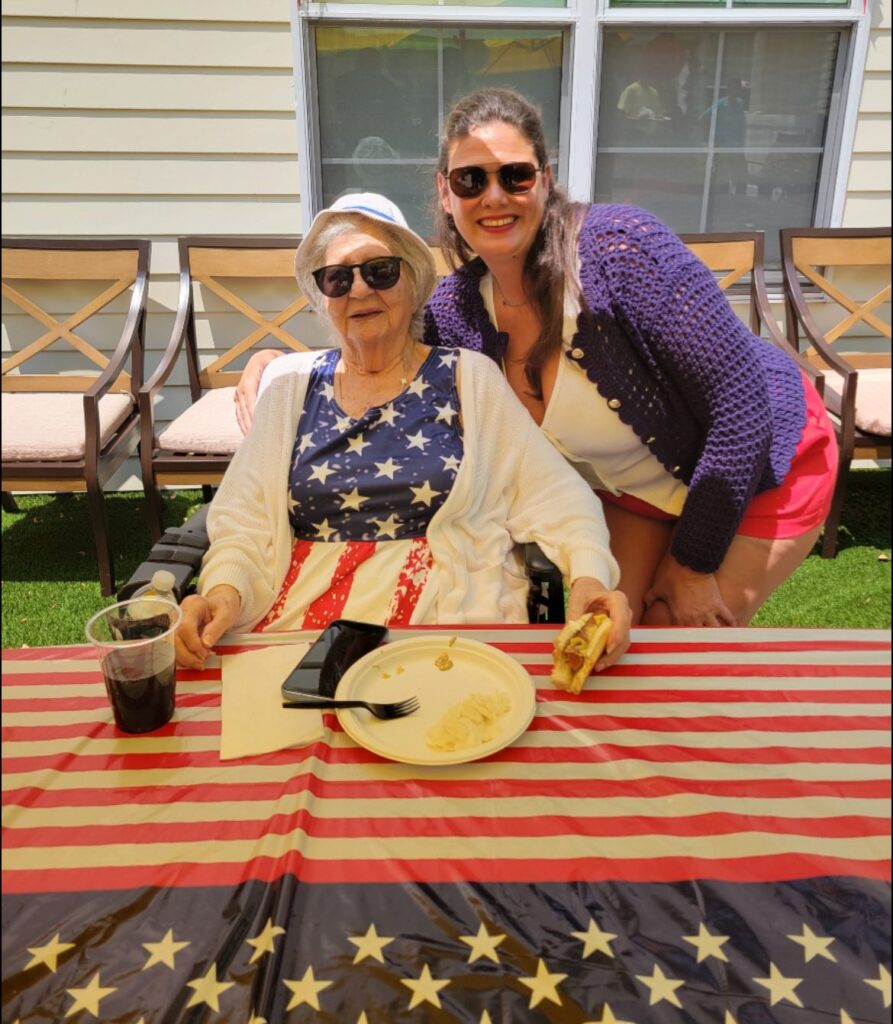
Especially for individuals with dementia, communicating can be challenging. The reason is that people with dementia often forget what they were talking about.
Many seniors become agitated, anxious, and angry about their communication and behaviors. In some forms of dementia, language abilities are affected such that people have a tough time finding the right words or have difficulty speaking.
What’s more, you may even feel frustrated with a person because of the language barriers and challenges. What’s important to note is that when providing care for a loved one with dementia, the diagnosis is the cause of the challenges in communication — not the person.
Therefore, patience is paramount when working with an individual with dementia. Eating healthy and staying active is great for everyone and is especially important for people with Alzheimer’s and other related dementia, especially for those with alcoholic dementia.
As dementia progresses, here are a few tips to ensure healthier behaviors and communication when interacting with a loved one with dementia:
- When talking with a person with dementia, remember to speak calmly, be patient, and reassure the person. Understanding and compassion go a long way.
- Allow the person to hold on to as much control as possible about the activities that occupy their lives.
- Respect the person’s personal space.
- Build enough transition time between activities, and ensure a variety of memory care activities in their life.
- Keep mementos of their life in and around their home to make the person feel more secure about their environment.
- Remind the person who you are if they don’t remember you, and avoid harsh communication and other behaviors that make people with dementia feel judged.
- Encourage healthy, two-way conversations with people with dementia as much as possible.
- Try distracting a person with an activity if they seem to find communicating to be challenging.
Seniors with dementia: tips for home safety
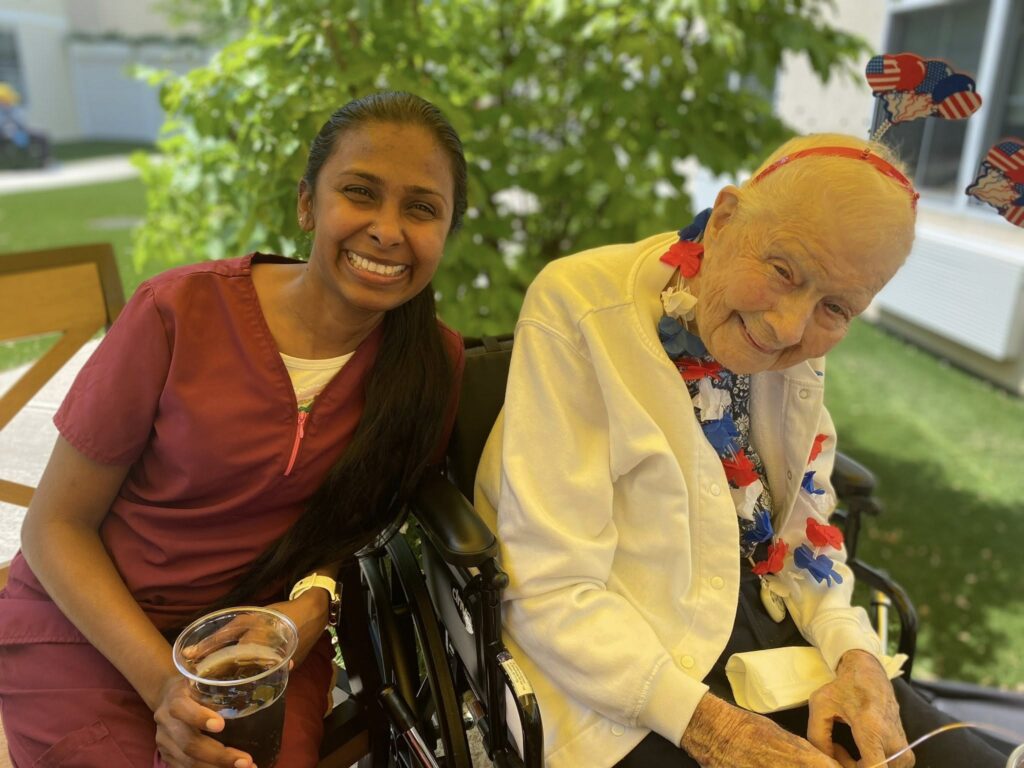
As a caregiver or family member to a person with Alzheimer’s or dementia, part of ensuring quality care for you and your loved one with dementia is creating a safe, inviting home environment.
For example, removing hazards and adding safety measures can make the person with dementia feel more independent, safe, and comfortable. Try these tips to create a safe living environment:
- Add stairs, carpet, and safety grips around the edges of areas in the home.
- Insert safety plugs into unused electrical outlets.
- Clear away small items that a loved one could trip over.
- Make sure all areas of the home are well-lit.
- Remove curtains and rugs with many lines and patterns to avoid adding confusion to your loved one’s life.
- Remove any potentially hazardous cleaning products or construction products (such as window cleaner, paint thinner, or matches) from view.
Living a healthy lifestyle with dementia: tips for active, healthy living
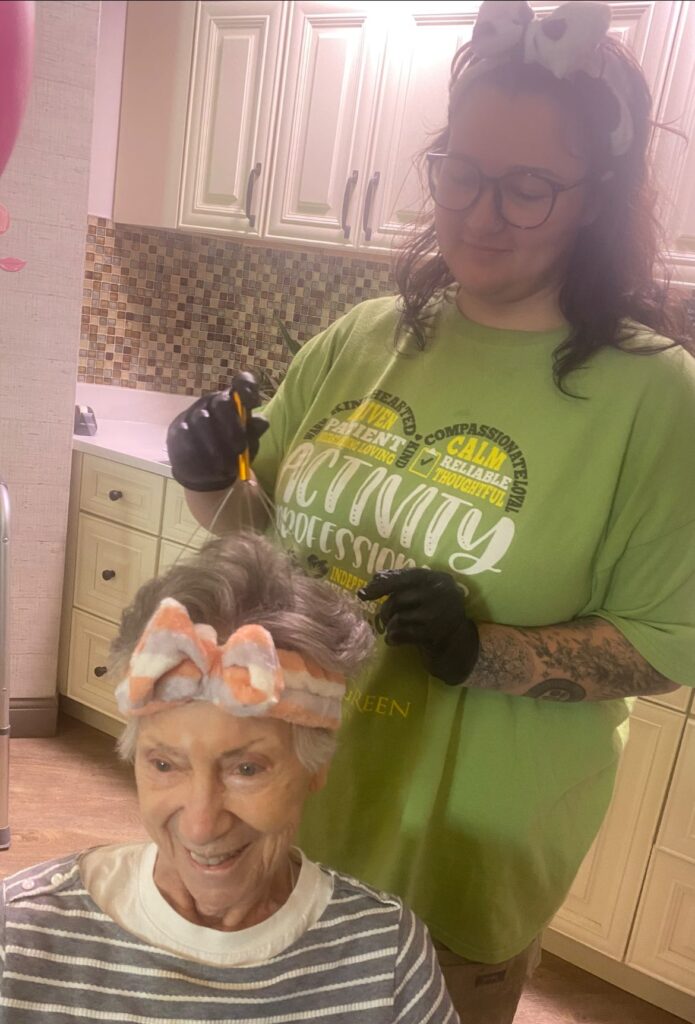
Just as eating the right foods and participating in healthy exercise are important for individuals without dementia, the same applies to those living with dementia. As memory care conditions progress, here are a few tips that can help you ensure a healthier and more active lifestyle for your loved one:
- Consider adding activities that the person can do to stay active. You want to be mindful of your loved one’s abilities and not push them beyond what you feel they’re capable of accomplishing.
- Offer a bit of scaffolding to an activity to help make the activity more enjoyable. People with dementia may lack interest or initiative and can have trouble starting activities. But, if others do the planning, they often join in on the fun.
- Add movement and music to activities.
- Is your loved one not ready for a large exercise? Try mini-workouts or shorter workouts.
- Buy healthy food that’s easy to prepare and digest, and be mindful of giving your loved one choices about what they eat.
Dementia here, now, and in the future: tips for caregivers

But, lest we make this article all about your loved one, we need to talk about you, the caregivers. Being a caregiver can be supremely rewarding, but the job can also take a toll if self-care isn’t scheduled.
Your loved one is only as healthy as you are able to provide quality care for them.
Here are a few self-care and respite-based tips for caregivers providing long-term care or dementia care for individuals with different care needs.
- There’s no shame in asking for help when you need it. Take your family members and friends up on a little help.
- Eat nutritious foods, which can help keep you healthy and active.
- Join a caregiver or respite care support group
- Spend time with loved ones.
- Engage in favorite hobbies, and exercise often.
- Cultivate a practice of meditation.
- If, after trying the above tools, you’re still not able to cope with stress and anxiety, consider talking with a healthcare professional about other potential treatments.
Did you know?
Becoming a caregiver is an extremely rewarding experience. It’s an opportunity for you to give back to a parent or family member who has given so much of their time to you.
By being a family caregiver, you’re returning the favor.
Yet, this shift in roles can also be a source of guilt or stress over providing adequate care for your loved one. Can we take a load off?
Our caregivers understand the struggle; many have loved ones with dementia themselves. At our facility, we provide quality, loving care in an environment that prioritizes safety first.
To see what our compassionate, holistic caregiving looks like in action, check us out on our Facebook page here.
Have questions about dementia? Our memory care specialists can help!

Caring for a person with dementia, planning for their future, and planning advanced healthcare decisions for someone else can take a toll. Can we lend you a hand?
If you have questions about dementia or would like information to help support you in your journey, we’ve got your back. Our caregivers have more than 20 years of dedicated experience providing quality caregiving in community-style assisted living and memory care neighborhoods.
In other words, you don’t have to do this alone. We’re here for you.
Whether your loved one is in the last stage of dementia or is beginning to exhibit restlessness — or if you’re wondering whether a dementia diagnosis is warranted — our licensed senior care specialists are happy to provide you with quality information to bring you peace of mind and clarity for the next steps ahead.
Ready to try out a memory care community? No problem.
If you’re curious to explore what our Village is like, get in touch with us. We’d be happy to show you around our community — lunch is on us!
Until then, don’t hesitate to reach out if you need anything. We’d be happy to help!
Welcome to Village Green: Levittown, NY’s Dementia Caregiving Community of Choice

